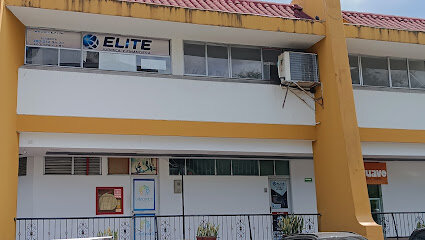Best Faith-Based Law Lawyers in Villavicencio
Share your needs with us, get contacted by law firms.
Free. Takes 2 min.
List of the best lawyers in Villavicencio, Colombia
About Faith-Based Law in Villavicencio, Colombia
Faith-Based Law refers to the set of legal norms, principles, and jurisprudence relating to the rights and responsibilities of religious organizations, institutions, and individuals as they practice and express their faith. In Villavicencio, Colombia, a city with diverse religious communities, Faith-Based Law is particularly relevant in matters such as the recognition of religious organizations, religious education, freedom of worship, and the protection of religious rights under the Colombian Constitution. These laws also address how faith influences personal status issues, charitable activities, and interactions with the state.
Why You May Need a Lawyer
Faith-Based Law can be complex due to its intersection with constitutional, civil, and administrative law. You may need a lawyer for a variety of reasons, including:
- Registering or establishing a religious organization or church
- Resolving disputes within religious communities
- Defending freedom of religion or belief in cases of discrimination or restriction
- Navigating government requirements for charitable work or property ownership by religious entities
- Compliance with educational standards for faith-based schools
- Inheritance and family matters relating to faith traditions
- Negotiating contracts or property acquisitions for religious institutions
- Representing religious leaders or members in legal proceedings
Seeking legal advice ensures that your rights and obligations are clearly understood and protected in accordance with both local and national laws.
Local Laws Overview
Key aspects of Faith-Based Law in Villavicencio stem from the Colombian Constitution, which guarantees freedom of religion under Article 19. This article ensures all individuals and groups have the right to practice and spread their beliefs. Colombia’s Law 133 of 1994 regulates religious freedom, defining the legal status of religious entities, requirements for registration, and the scope of their public and private actions.
In Villavicencio, religious entities wishing to obtain legal recognition must register with the Ministry of Interior. This registration allows them to enter contracts, acquire property, and work with local authorities. The city works in alignment with national laws but may have specific administrative protocols for local compliance. Additionally, issues such as zoning for temples or houses of worship, licenses for faith-based educational institutions, and permissions for public religious events are subject to municipal regulations.
It is also crucial for faith communities to understand the rules regarding tax exemption for religious entities, employment law as it pertains to clergy and staff, and protocols around interfaith relations and anti-discrimination protections.
Frequently Asked Questions
What is required to legally establish a church or religious organization in Villavicencio?
You must submit a formal application to the Ministry of Interior, including the organization’s statutes, founding members’ information, and intended religious activities. Upon approval, the entity receives legal standing to operate.
Are churches and religious organizations tax-exempt in Villavicencio?
Registered religious entities are typically exempt from income taxes but may need to fulfill reporting obligations to local and national tax authorities for other financial activities.
Does government approval allow any religion to operate freely in Villavicencio?
Yes, Colombia guarantees religious freedom, provided organizations respect public order, health, and the rights of others. All groups must comply with legal requirements.
Can religious organizations own property in Villavicencio?
Yes, once legally registered, religious organizations can buy, sell, and manage property. Specific municipal procedures for property registration must be followed.
Are there special regulations for faith-based schools?
Faith-based schools must meet the Ministry of Education’s academic standards. They may include religious instruction but must respect student rights and academic guidelines.
How can discrimination based on religion be addressed legally?
Individuals facing religious discrimination can file complaints with relevant authorities, such as the local ombudsman or the Ministry of Interior. Legal action may be possible if rights are violated.
What legal protections exist for religious leaders?
Religious leaders are protected under general laws regarding freedom of speech and religion. Nonetheless, they must act within the framework of the law and respect the rights of others.
How do family law issues intersect with faith-based laws?
While Colombia’s Civil Code predominantly governs family law, certain issues like marriage ceremonies, divorce, and burial rites may involve religious law, provided they do not contradict national legislation.
Can a religious entity be dissolved or lose its legal status?
Yes, if the organization fails to comply with legal obligations or engages in activities contrary to the law, it can be sanctioned or dissolved by the authorities.
Where should I file a complaint if my religious rights are violated?
Complaints can be filed with the Ministry of Interior, the Defensoría del Pueblo (Ombudsman's Office), or local courts, depending on the nature and severity of the violation.
Additional Resources
For further information and assistance, the following resources may be helpful:
- Ministry of Interior, Division of Religious Affairs - for registration and regulation matters
- Defensoría del Pueblo (Ombudsman's Office) - for protection of constitutional rights
- Municipal Government of Villavicencio - for local administrative procedures
- Colombian Council of Churches or local interfaith associations - for community support and guidance
- Licensed attorneys with experience in constitutional or religious law
Next Steps
If you require legal advice or assistance regarding Faith-Based Law in Villavicencio, begin by clarifying your issue and gathering all relevant documentation. Consider contacting a specialized lawyer to assess your situation and guide your actions according to the latest legal framework. You may also approach relevant government offices, such as the Ministry of Interior or local municipality, for procedural information. If your case involves discrimination or constitutional rights, the Defensoría del Pueblo may offer protection or mediation. Taking timely, informed action is key to ensuring that your faith-based legal interests are safeguarded within the boundaries of Colombian law.
Lawzana helps you find the best lawyers and law firms in Villavicencio through a curated and pre-screened list of qualified legal professionals. Our platform offers rankings and detailed profiles of attorneys and law firms, allowing you to compare based on practice areas, including Faith-Based Law, experience, and client feedback.
Each profile includes a description of the firm's areas of practice, client reviews, team members and partners, year of establishment, spoken languages, office locations, contact information, social media presence, and any published articles or resources. Most firms on our platform speak English and are experienced in both local and international legal matters.
Get a quote from top-rated law firms in Villavicencio, Colombia — quickly, securely, and without unnecessary hassle.
Disclaimer:
The information provided on this page is for general informational purposes only and does not constitute legal advice. While we strive to ensure the accuracy and relevance of the content, legal information may change over time, and interpretations of the law can vary. You should always consult with a qualified legal professional for advice specific to your situation.
We disclaim all liability for actions taken or not taken based on the content of this page. If you believe any information is incorrect or outdated, please contact us, and we will review and update it where appropriate.









